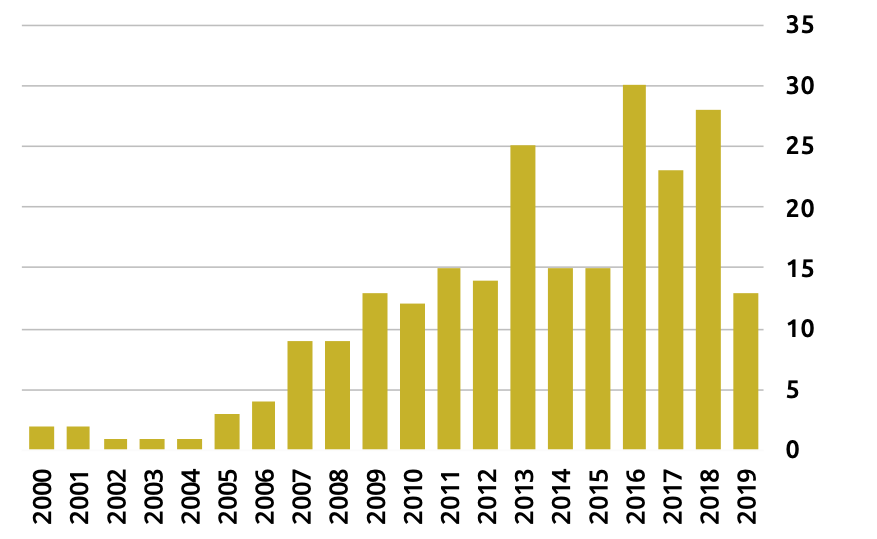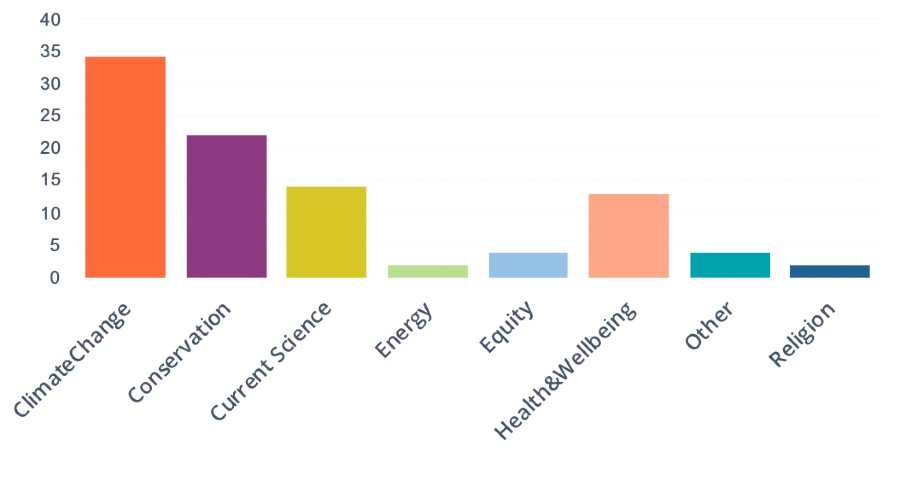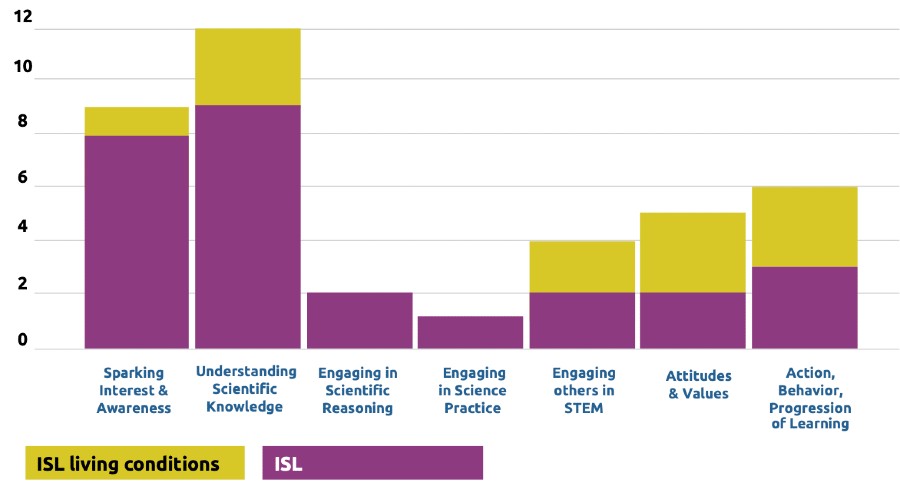Addressing Societal Challenges Through STEM
A Knology research fellow is leading efforts to better understand how informal learning institutions are using STEM knowledge to take on social issues
Addressing Societal Challenges through STEM is a research initiative that was launched to identify and describe the range of ways that informal STEM learning institutions are addressing societal challenges and how they situate STEM knowledge and scientific reasoning in that engagement. This research is intended to advance the effectiveness of informal science learning organizations including the practitioners who engage with the public through exhibits or education programs, individuals who set institutional policies, and researchers and evaluators.
For this research, we assessed data from studies that met specific criteria. They had to be conducted in an informal learning environment, and be published after the year 2000. These studies also had to be publicly available through a peer-reviewed journal, on the website informalscience.org, or published in the ProQuest thesis database. We selected a total of 230 studies from the literature for the analysis.

We focused on studies that explored specific social issues. We defined social issues as societal conditions that share some the following characteristics:
- They are harmful or limiting to a significant proportion of society,
- They are complex, systemic, and enduring;
- They require a shift in societal structures, expectations, or behaviors, and
- There is a lack of social agreement on the nature of the problem or the nature of the solution.
We performed a configurative systematic analysis of existing literature using a question-based, iterative process of mapping, organizing, analyzing, and synthesizing the studies.
Key Findings
Types of social issues addressed in informal science environments
Most of the social issues that the papers we evaluated addressed could be broadly categorized into climate change, conservation or environmental protection, equity issues, and health and wellness.

We looked at a specific subset of museums - zoos and aquariums. As institutions with a focus on living collections, they are distinct from other kinds of informal learning institutions. Our analysis showed that zoo and aquarium literature on social issues focused primarily on climate or environment-related topics with few addressing topics related to lived experiences.
Impact of projects
For each study that we looked at, we analyzed the impacts that the researchers intended, measured, and achieved. We then categorized each study by engagement with science and generic learning outcomes. Our analysis showed that researchers were more likely to report achieving impacts around sparking interest and advancing knowledge in social issues. Many studies also reported intended outcomes around societal impacts but those were not measured.

Future Directions
This research is ongoing and there are several questions that we hope to answer from the literature including:
- The types of social issues addressed and not addressed
- Relationships between the different types of engagement (eg. Exhibits, programs, media), nature of issues, and intended audience.
- Arguments for types of issues that should be addressed by informal STEM learning institutions.
- Identifying heuristics and recommendations for practice and identifying hypotheses and questions for advancing theory and research around the engagement of ISL institutions in advancing the virancy, equity, and sustainability of society and the environment.
About this Study
The Addressing Societal Challenges through STEM study is a Knology-led study that is supported by the National Science Foundation (NSF) under Grant No. 1906556. It seeks to better understand how informal learning institutions are advancing the use of STEM knowledge and scientific reasoning in the ways that individuals, families, and communities understand what they can do, and apply their learning to solve the societal challenges of our time.
Photo by tuguldur baatar on Unsplash